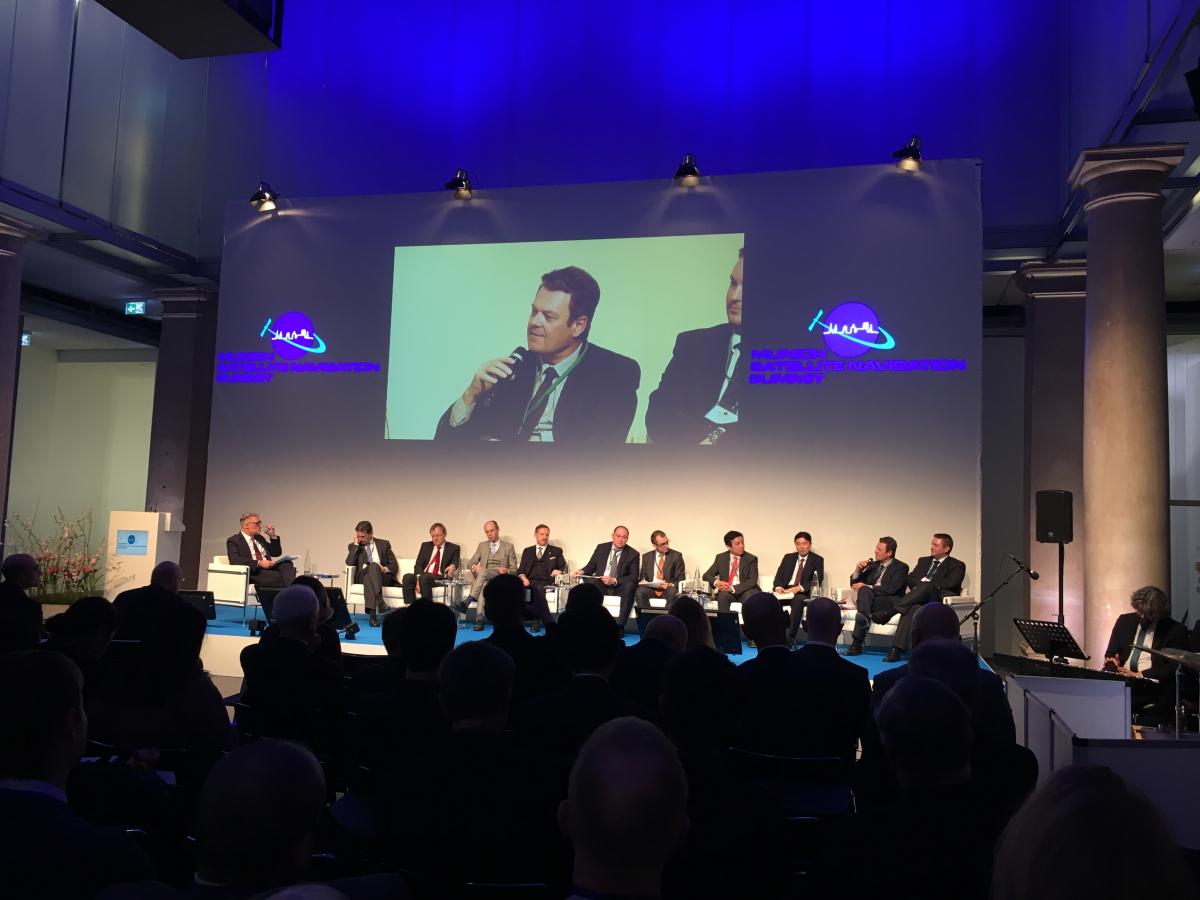The Munich Satellite Navigation Summit opened on March 5 with a discussion about who stands to win from competition and cooperation in satellite navigation. After a lively debate it was decided that, ultimately, the end user will be the winner in what one panellist described as ‘the Golden Age of GNSS.’
Matthias Petschke, Director of EU Satellite Navigation Programmes,  European Commission, opened the discussion by stressing that a balanced mix between competition and cooperation is needed in the satellite navigation sector. He said that competition between providers of GNSS services and between industrial players would lead to better services, more innovation and reduced costs. “On the other hand, cooperation will ensure compatibility of signals in terms of radio frequency characteristics and interoperability of systems – allowing multi-constellation to provide better services,” he said.
European Commission, opened the discussion by stressing that a balanced mix between competition and cooperation is needed in the satellite navigation sector. He said that competition between providers of GNSS services and between industrial players would lead to better services, more innovation and reduced costs. “On the other hand, cooperation will ensure compatibility of signals in terms of radio frequency characteristics and interoperability of systems – allowing multi-constellation to provide better services,” he said.
European GNSS Agency (GSA) Executive Director Carlo des Dorides agreed. He said that cooperation is necessary – and frequency coordination is only one example of this. The GSA director noted that, from a user perspective, GNSS systems provide the best performance when they work together. “Today more than 60% of the chipsets available on the market are multi-system and more than 20% foresee four-satellite-system compatibility. The market is requesting more reliable, more accurate positioning, and this is what multi-system provides,” he said, adding that within multi-constellation solutions Galileo has a special place thanks to its frequency compatibility with GPS.
Galileo outperforming expectations
Noting that navigation information had become an integral part of our daily lives, Simon Plum, Managing Director for the Galileo Programme at DLR GfR, said that priorities have started to shift from the deployment of infrastructure to service delivery on a global scale. “Europe has proven its capability over the past number of years, and now the system has to grow its reputation of precision and, more importantly, of reliability,” he said.
In this regard, Petschke stressed that Galileo is already delivering much better services than expected and, what’s more, it is transparent about its performance, with quarterly performance reports published on the GSC website. “The market uptake results are impressive, preliminary figures show that some 75 million Galileo-enabled smartphones were sold last year and 95% of the chipsets on the market are already Galileo-enabled. What’s more, as of April 1 this year, all new passenger cars in the EU will be equipped with the eCall rapid assistance systems, which are enhanced by Galileo,” he said.
Read this: GSA publishes eCall guidelines to facilitate GNSS compatibility tests
User-driven
Carlo des Dorides said that the GSA is focusing on ensuring that the current generation of Galileo services, as well as the second generation, are driven by user needs. He said that Galileo will soon offer two unique differentiators that other GNSS are not currently providing: the Open Service Navigation Message Authentication (OS NMA) and worldwide Precise Point Positioning (PPP). “The new services will meet emerging needs, especially in autonomous applications,” he said.
Go Takizawa, Executive Director of QZSS Strategy at the National Space Policy Secretariat in Japan noted that by 2020 there would be more than 100 positioning satellites available in the world and that cooperation, compatibility and interoperability are important to ensure the performance and accuracy of the overall satellite positioning system. “This should bring benefits to GNSS users. To make sure that the users are the ultimate winners, we need to have friendly competition and ensure compatibility,” he said.
Media note: This feature can be republished without charge provided the European GNSS Agency (GSA) is acknowledged as the source at the top or the bottom of the story. You must request permission before you use any of the photographs on the site. If you republish, we would be grateful if you could link back to the GSA website (http://www.gsa.europa.eu).